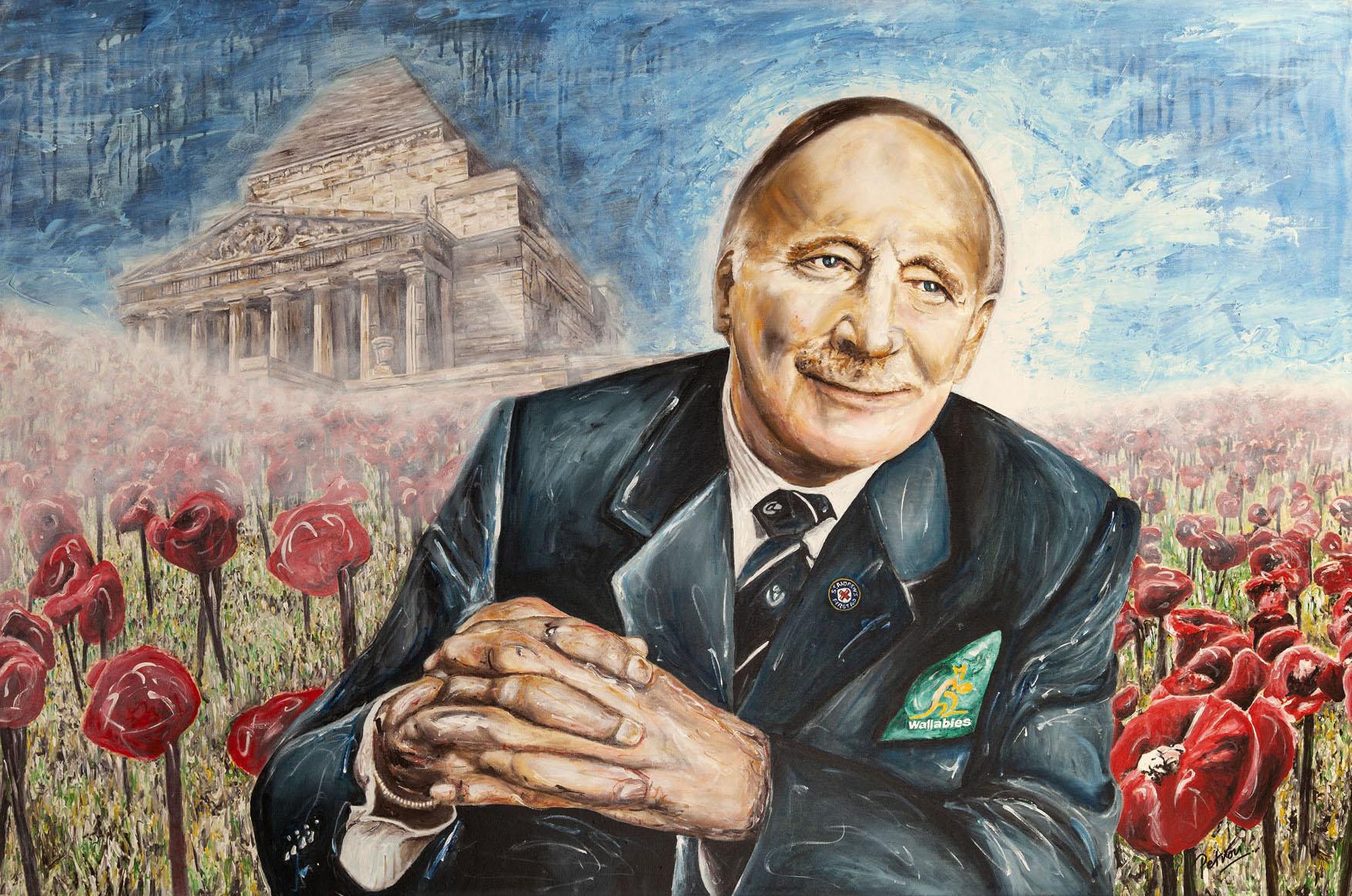Sir Edward ‘Weary’ Dunlop AC, CMG, OBE
“The men would do anything for him and are proud to be with him. I am sure it is his presence which holds this body of men from moral decay in bitter circumstances which they can only meet with emotion rather than reason. … This selflessness, this smile, command more from the men than an army of officers each waving a Manual of Military Law.”
Born in Wangaratta, Victoria, in 1907 Dunlop studied pharmacy and medicine at the University of Melbourne and played rugby union for Australia in 1932. His nickname, ‘Weary’, was a play on the well-known brand of Dunlop Tyres which, according to their makers, ‘never wear out’.
Although only one of 106 Australian doctors captured by the Japanese and of 44 on the railway, Dunlop came to represent the self-sacrifice, courage and compassion which doctors and Australians more generally are remembered as displaying in captivity.
In November 1939, Dunlop enlisted in the Australian Army Medical Corps and served with the 2nd Australian Imperial Force in Greece, Crete and North Africa. When Australian troops landed in Java in February 1942 in a futile effort to stop the Japanese advance Dunlop took command of No.1 Allied General Hospital at Bandung. When Java fell to the Japanese, he became a prisoner.
In January 1943 Dunlop and nearly nine hundred prisoners were transferred from Java to Changi. Two weeks later they left for Thailand. ‘Dunlop Force’ reached Konyu River Camp on 25 January 1943. Dunlop himself moved to Hintok Mountain camp in March. He stayed here until October, when he was sent to Tha Sao Hospital further down the Kwae Noi. In 1944 he moved to the hospital camp at Chungkai and later to Nakhon Pathom where he remained until the end of the war.
Dunlop was renowned for his untiring efforts to care for the sick. Many times he put his own health at risk, earning himself physical punishment when he protested to the Japanese. At other times his sheer physical presence—he was nearly two metres tall—seemed to intimidate his captors. When a Japanese soldier hit a man with bad feet and malaria and then laughed at him, Dunlop was so enraged that, according to his diary which he kept throughout his ordeal:
“I lost nearly all control and advanced on them, calling them every ‘cuss’ word I ever heard. No doubt the meaning was caught, if not the actual words, and they backed away.” (17 June 1943)
Dunlop was also a strong administrator and leader. He kept meticulous notes on the men under his command and his leadership and courage earned him the lasting loyalty of the men who served under him.
After the war Dunlop gained increasingly public prominence as an advocate for former prisoners of the Japanese. He supported individuals making pension claims, lobbied governments on their behalf and took leadership roles in ex-POW associations. He was knighted in 1969 and received many other honours in his later life.
After his death in 1993, Dunlop was given a state funeral at St Paul’s Cathedral, Melbourne. Dunlop has also been commemorated on a 50 cent coin and in statues including at the Australian War Memorial in Canberra, Melbourne, and Benalla, his home town.


